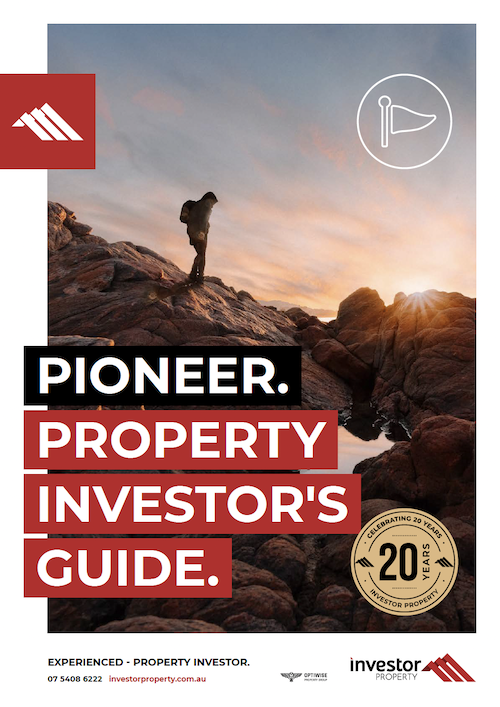Lease Renewals: What Smart Investors Should Be Reviewing
As we approach one of the busiest lease renewal periods of the year, savvy investors know that now is the time to review their tenancy agreements, assess market conditions, and ensure their property is delivering the best possible return. It’s easy to skim over an email from your property manager about lease renewals, but taking…

As we approach one of the busiest lease renewal periods of the year, savvy investors know that now is the time to review their tenancy agreements, assess market conditions, and ensure their property is delivering the best possible return.
It’s easy to skim over an email from your property manager about lease renewals, but taking a closer look can make a significant difference in your investment returns. Knowing what to review, what to negotiate, and whether your property manager is making the right recommendations is key to growing your portfolio successfully.
At Investor Property, we work hard to match the right properties to your strategy, but ongoing management is just as critical to ensuring that strategy is fulfilled. Lease renewals present a valuable opportunity to optimise your returns, reduce risks, and assess whether you have the right support in place.
Our friends at Rock Property are experts in proactive property management, and they’ve shared some top insights to help you navigate lease renewals like a pro. Here’s what to consider before locking in another lease:
1. Market Rent Review – Are You Leaving Money on the Table?
The rental market is constantly shifting, and what was a fair rent 12 months ago may now be under market value. Take the time to compare similar properties in your area—have rents increased? Are tenants willing to pay more for properties like yours? Adjusting your rent to align with market conditions ensures you’re not missing out on higher returns.
It’s also important to note that Queensland rental laws now limit rent increases to once every 12 months. This means that missing the opportunity to adjust your rent at renewal time could lock you into a lower rate for the next year. A well-timed market review ensures you don’t leave money on the table while staying compliant with current legislation.
💡 Example: If similar properties in your area have gone up by $50 a week and you’re still charging last year’s rate, that’s over $2,500 a year in lost income. A quick market review could mean an easy boost to your cash flow.
2. Legislative Changes – Are You Up to Date?
Rental laws are always evolving, and recent legislative updates may impact what you can and can’t do at renewal time. Changes to notice periods, rent increase caps, and tenant rights could affect your decision-making. Staying informed helps you avoid legal missteps and ensures you’re compliant with the latest regulations.
💡 Example: If you’re unaware of new rent control measures in your state, you could miss the window for an increase or unknowingly violate new rules, leading to costly delays or disputes.
3. Tenant Performance & Relationship – Are They the Right Fit?
Not all tenants are created equal. Before renewing, review their payment history, property care, and communication. A great tenant who pays on time, takes care of the property, and communicates well is worth keeping, even if you could secure a slightly higher rent elsewhere. On the other hand, if you’ve had late payments, complaints, or property damage, renewal might not be the best option.
💡 Example: A tenant who has been consistently late on rent could cost you weeks of lost income over the lease term. In contrast, a tenant who maintains the home well and pays on time adds long-term value.
4. Property Condition & Maintenance – Is Now the Time for Upgrades?
A lease renewal is the perfect time to evaluate the condition of your property. Have there been any maintenance issues? Is it time for a fresh coat of paint or new appliances? Addressing minor upgrades now can justify a rent increase and attract long-term tenants who appreciate a well-maintained home.
💡 Example: Investing in air-conditioning or modern lighting could make your property more competitive and allow you to command higher rent while increasing tenant satisfaction.
5. Lease Terms & Negotiation – Are You Maximizing Your Investment?
Beyond rent, consider adjusting lease terms to better align with your investment strategy. Would a longer lease reduce vacancy risks? Are there terms that need updating, such as pet policies, rent review clauses, or maintenance responsibilities? Negotiating smart terms can protect your interests while keeping good tenants in place.
💡 Example: If your property is in a high-demand area, locking in a 12- or 24-month lease could provide income stability and reduce turnover costs.
Not Happy with Your Property Manager? It’s Time for a Change
If your property manager isn’t proactively reviewing these factors for you, it might be time to work with a team that does. Our friends at Rock Property don’t just process renewals—they actively manage your investment to ensure it’s delivering maximum returns while minimising risks.
If you’d like a second opinion on your lease renewal options or are considering making a switch, reach out to Rock Property today. A simple review could make all the difference in securing the best outcome for your investment.






